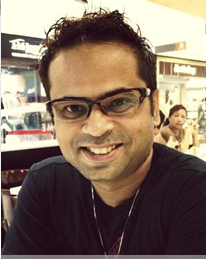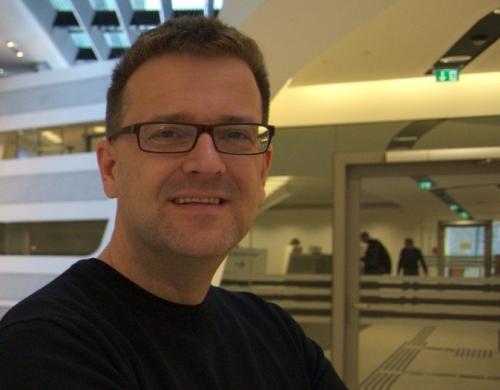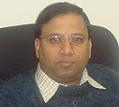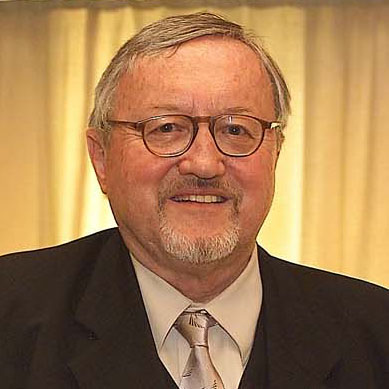 |
Sourav S Bhowmick, Nanyang Technological University, Singapore
Title: |
ABSTRACT
Visual query interfaces enable users to construct queries without special training in the syntax and semantics of a query language. Traditionally, efforts toward such interface design and devising efficient query processing techniques are independent to each other. This is primarily due to the chasm between HCI and data management fields as since their inception, rarely any systematic effort is made to leverage techniques and principles from each other for superior user experience. In this paper, we lay down the vision of bridging this chasm in the context of visual graph query formulation and processing. Specifically, we present the architecture and novel research challenges of a framework for querying graph data visually where the visual interface management is data-driven and query processing and performance benchmarking are HCI-driven.
SPEAKER BIOGRAPHY
Sourav S Bhowmick is an Associate Professor in the School of Computer Engineering, Nanyang Technological University and the Director of Data-Intensive Scalable Computing (DISCO) Lab. He is affiliated with the Data Management Research Group at NTU (DANTE), Social Analytics Research Group (SONAR), and the Computational Systems Biology (COSBY) Research Group. He was a Visiting Associate Professor at the Biological Engineering Division, Massachusetts Institute of Technology (MA, USA) from 2007 to 2013. He was also a Senior Visiting Professor at Fudan University in 2013. Sourav’s current research interest is multi-disciplinary in flavor, focusing primarily on bridging data management and HCI, computational social science, and in silico network biology. He has published more than 150 papers in major international data management, data mining, multimedia, bioinformatics, and systems biology conferences and journals including top-tier venues such as VLDB, IEEE ICDE, ACM WWW, ACM SIGMOD, CIDR, ACM SIGKDD, ACM MM, ACM CIKM, IEEE TKDE, IEEE TSC, VLDB Journal, Bioinformatics, and Biophysical Journal. He has served as a program chair/co-chair of several international workshops and conferences such as DEXA 2008 and 2009, DASFAA 2013. Sourav has been tutorial speaker for several international conferences such as ER 2006, APWeb 2008, WAIM 2008, PAKDD 2009 and 2011, DASFAA 2011 and 2012, and ADMA 2012. He has received Best Paper Awards at ACM CIKM 2004 and ACM BCB 2011 for papers related to evolution mining and biological network summarization, respectively. In his free time, Sourav likes to paint.
 |
Dirk Draheim, University of Innsbruck, Austria
Title: |
ABSTRACT
Constraints form an important part of models to capture experts' domain knowledge. Sustainable constraint writing is about making constraints robust in model evolution scenarios, i.e., it is about saving the knowledge expressed by data constraints against model updates. As an important example for sustainable constraint writing, we walk through the semantics of power type constructs. Power types are used to model sets of sets. Modeling sets of sets of objects is important, because it arises naturally in many expert domains. We will see that the intuitively intended meaning of power type constructs is not merely about structuring information but is about establishing type-generic constraints. We give a precise semantics for power types based on sustainable constraints. In general, sustainable constraints need to contain meta data parts, i.e., they are reflective constraints. In accordance to the notion of sustainable constraint writing, we introduce a symbolic viewpoint on model manipulation that complements current mainstream viewpoints. The symbolic viewpoint is about denying a model/data level divide. We discuss sustainable constraint writing with respect to further issues in concrete technologies and tools for transparent database access layers, meta modeling and generative programming.
SPEAKER BIOGRAPHY
Dirk Draheim heads the data center of the University of Innsbruck and is Adjunct Reader at the Faculty of Information Systems of the University of Mannheim. Dirk holds a Diploma in computer science from Technische Universtität Berlin, a PhD from Freie Universität Berlin and a Habilitation from the University of Mannheim. From to 1990 to 2006 he worked as an IT project manager, IT consultant and IT author in Berlin. In summer 2006, he was Lecturer at the University of Auckland and from 2006-2008 he was area manager for database systems at the Software Competence Center Hagenberg as well as Adjunct Lecturer in information systems at the Johannes-Kepler-University Linz. Dirk is co-author of the Springer book "Form-Oriented Analysis" and author of the Springer book "Business Process Technology". Dirk is member of the ACM.
 |
Sanjay Kumar Madria, Site Director and Professor, NSF Industry/University Center on Net-centric Software and Systems, Department of Computer Science, Missouri University of Science and Technology, Rolla, MO
Title: |
ABSTRACT
Due to cost-efficiency and less hands-on management, big data owners are outsourcing their data to the cloud, which can provide access to the data as a service. However, by outsourcing their data to the cloud, the data owners lose control over, as the cloud provider becomes a third party service provider. At first, encrypting the data by the owner and then exporting it to the cloud seems to be a good approach. However, there is a potential efficiency problem with the outsourced encrypted data when the data owner revokes some of the users’ access privileges. An existing solution to this problem is based on symmetric key encryption scheme but it is not secure when a revoked user rejoins the system with different access privileges to the same data record. In this talk, I will discuss an efficient and Secure Data Sharing (SDS) framework using a combination of homomorphic encryption and proxy re-encryption schemes that prevents the leakage of unauthorized data when a revoked user rejoins the system. I will also discuss the modifications to our underlying SDS framework and present a new solution based on the data distribution technique to prevent the information leakage in the case of collusion between a revoked user and the cloud service provider. A comparison of the proposed solution with existing methods will be discussed in detail. Furthermore, I will outline how the existing work can be utilized in our proposed framework to support secure query processing for big data analytics. I will provide a detailed security as well as experimental analysis of the proposed framework on Amazon EC2 and highlight its practical use.
SPEAKER BIOGRAPHY
Sanjay Kumar Madria received his Ph.D. in Computer Science from Indian Institute of Technology, Delhi, India in 1995. He is a full professor in the Department of Computer Science at the Missouri University of Science and Technology (formerly, University of Missouri-Rolla, USA) and site director, NSF I/UCRC center on Net-Centric Software Systems. He has published over 200 Journal and conference papers in the areas of mobile data management, Sensor computing, and cyber security and trust management. He won three best papers awards including IEEE MDM 2011 and IEEE MDM 2012. He is the co-author of a book published by Springer in Nov 2003. He serves as steering committee members in IEEE SRDS and IEEE MDM among others and has served in International conferences as a general co-chair (IEEE MDM, IEEE SRDS and others), and presented tutorials/talks in the areas of mobile data management and sensor computing at various venues. His research is supported by several grants from federal sources such as NSF, DOE, AFRL, ARL, ARO, NIST and industries like Boeing, Unique*Soft, Raytheon-BBN, etc. He was awarded JSPS (Japanese Society for Promotion of Science) visiting scientist fellowship in 2006 and ASEE (American Society of Engineering Education) fellowship at AFRL from 2008 to 2012. In 2012-13, he was awarded NRC Fellowship by National Academies. He received faculty excellence research awards in 2007, 2009, 2011 and 2013 from his university for excellence in research. He served as an IEEE Distinguished Speaker, and currently, he is an ACM Distinguished Speaker and IEEE Senior and Golden Core Member.
 |
Roland Traunmüller, Johannes Kepler University Linz, Austria
Title: |
ABSTRACT
When then feeling of pressure from competition increases, Knowledge and Innovation are hailed as a competitive advantage. They are seen as a panacea – quasi as a key to wealth. The contribution considers two trends with promising innovation aspects - Open Government and Electronic Government. Generally, we experience various connections along with sustaining and reinforcing impacts. Yet, occasionally, frictions may appear as well. No wonder, because Open Government and Electronic Government have standpoints which are quite similar yet somehow diverging as well.
Open Government is a governing doctrine bestowing to citizens the right to access the documents and proceedings of the government. The origins of Open Government discussions can be dated back to the time of the European Enlightenment. Open Government has a broad scope and comprises diverse trends:
- Open Source governance stresses the application of the free software movement. For instance Open Source software is concerned with the ways under which computer programs can be distributed.
- Another top issue is Open Government Data. Several public institutions provide data so creating an ample demand pull. The categories of data involved comprise geographical data, micro-census, regulations, traffic data etc. On this basis successful applications are created in cooperation of agencies with private enterprises.
- Public value is another saying and linked to several individual and societal interests. Primarily, there is already an intrinsic value in Government itself. Then value is created by improving openness, transparency and accountability as well as efficiency and effectiveness.
- Public and private sector platforms provide a way for citizens to engagement. Numerous initiatives have worked providing resources to access government. Areas concerned include citizen participation, budget spending, legislative tracking, etc.
E-Government aims to better serving individual citizens, communities, enterprises as well as public authorities themselves. The entire range of relationships of public bodies to clients and partners is concerned. Although technology sets the pace and creates opportunities, e-Government denotes a socio-cultural and a socio-technical domain too. Thus, a holistic view has to integrate several perspectives: users, technology, organisation, law, knowledge as well as culture, society and politics.
Open Government provides a way to improve both parts of E-Government, namely (a) the general administrative part of Government and (b) the relationship between state and citizens in participation. Concerning the general part (a), the legal and administrative domain knowledge is widened enabling internal improvements. Thus, for the impact of Open Government on the general administrative realm one can find manifold examples: feedback from and an increased contact with the public, a better cross agency cooperation and more ways of good practice exchange. Concerning case (b), E-participation, citizen involvement has the goal of improving public responsiveness and reconnecting voters with politics and policy making. Concrete applications are manifold including the following ones: political participation, advising of other citizens, assisting monitoring and law enforcement, providing service ratings, and so on.
ABOUT THE SPEAKER:
Roland Traunmüller is Professor Emeritus with the Institute for Informatics in Business and Government at Linz University, Austria. Prof. Traunmüller has worked in the field of Information Systems and applications of information technology in Government for three decades. In Austria Prof. Traunmüller heads the Forum e-Government, in Germany he is member of the steering body e-Government within the German Computer Society. Within DEXA Prof. Traunmüller founded in 2002 the EGOV conference series as annual meeting of the European R&D Community.
In addition he has been involved in various consulting activities and boards on the national and international level (Ministries, EU, UNO, and UNESCO). In recognition of his work official acknowledgements have come in. In recognition of his work official acknowledgements have come in. So for founding the e-Government R&D Community he got 2006 the “Prometheus” – an Award dedicated by the North-American Society on Digital Government and by the European Community for e-Government. He also got the Roland Wagner Award – an international award on computers helping people with special need. Lately the Republic of Austria honoured the Life-work of Prof. Traunmüller with awarding to him the Big Silber Medal of the Republic Austria.
